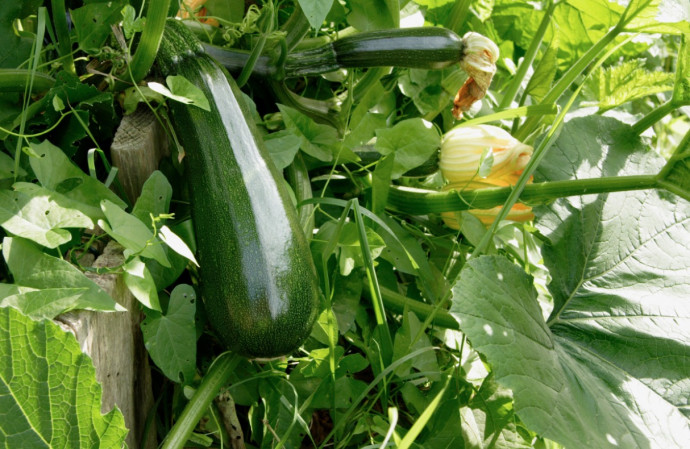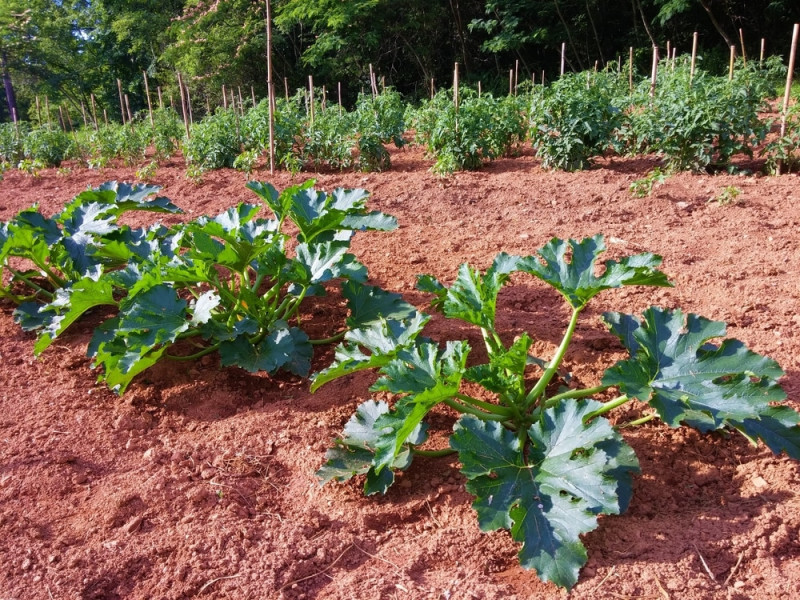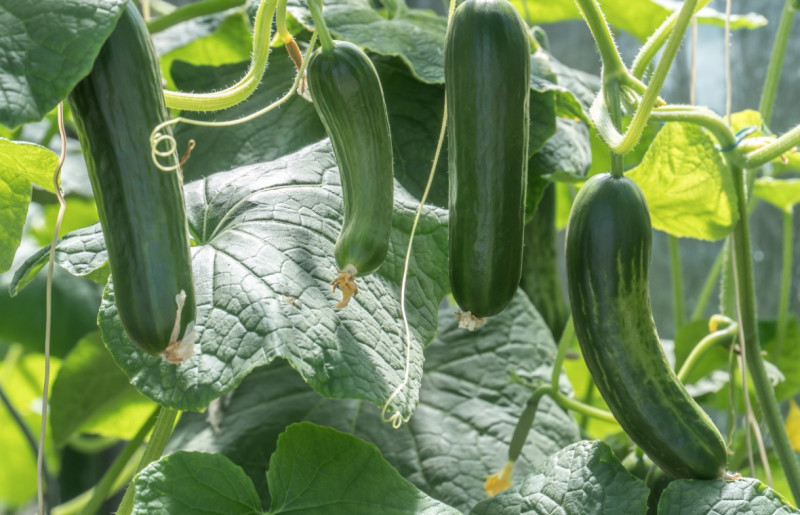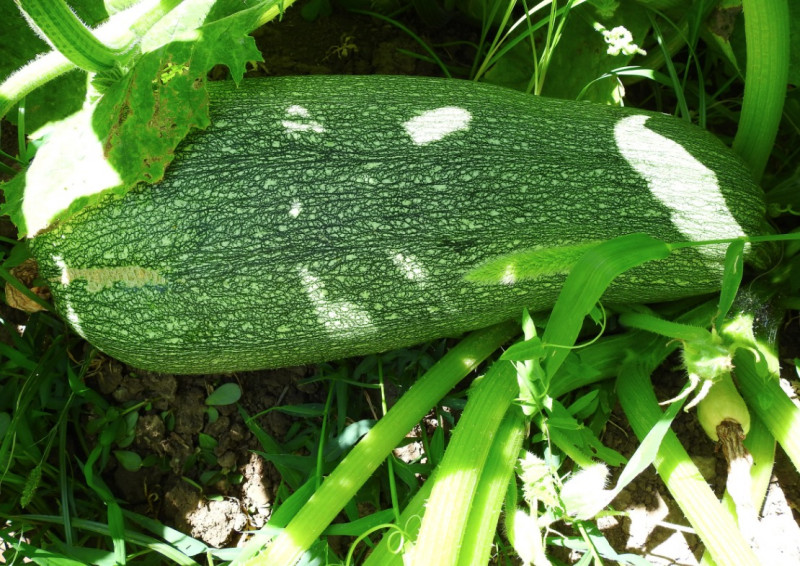Zucchini: Planting and Growing Tips

Growing zucchini is gratifying because the large plant matures quickly and is simple to keep healthy. here's a reason zucchini, a summer squash, is such a popular crop in the home garden: It's easy to start, can be grown in containers, and once zucchini plants start producing, they can be amazingly prolific. Since zucchini seeds will come to maturity quickly — about 45 to 55 days — you can even wait until August to plant for an early fall harvest. In fact, many experts recommend waiting until mid-July to plant so you can avoid infestation of a specific type of squash bug. Feeling inspired? Here's everything you need to know about planting, growing, harvesting and using zucchini.

Planting Zucchini
Choose soil that drains well in a sunny area of your yard. Amend the soil with compost or manure as zucchini plants are heavy feeders, meaning they require a lot of nitrogen.
Plant seeds an inch deep, 4 to 5 seeds per hill. If you're planting in rows, add 2 to 3 seeds per hole and 36 inches apart. If planting in hills, thin to 2 to 3 plants per hill once seedlings emerge.
Growing Zucchini
Here are some tips on caring for you zucchini:
- Mulching around your zucchini plants after they have emerged can help the soil retain water, especially important if you're having a dry summer.
- Make sure your zucchini plants get at least two inches of water per week.
- Water zucchini using a soaker hose as watering from a can may lead to mildew on the plant's leaves.

Pollinating Zucchini
If your zucchini have beautiful blossoms but they fall off with no fruit, then you may need to hand pollinate.
Most common garden plants produce flowers that have both male and female parts. However, the reproductive processes of squash plants are separated into distinctly male and female flowers. A pollinating insect must transfer the pollen from the male flower to the stigma inside a female flower for fruit to develop. The fruit then develops from the female flower only. Squash plants tend to produce loads of male flowers early in the season, sometimes well before the first females start to show up. This can account for what appears to be a fruit set problem early on as the male flowers are useless until the females arrive.
The first thing you'll need to do is identify the male and female flowers. Males have a straight, thin stem just behind the petals. They contain the anther inside, which should be loaded with powdery, yellow pollen. Females are easily identified by a tiny, immature zucchini fruit (or ovary) that sits just behind the petals. Depending on the variety, it sometimes looks more like a thickened stem than a fruit.
Zucchini flowers tend to open up wide in the morning and are often closed by the afternoon, so it is important to hand pollinate in the morning. Pluck a fully open male flower from the plant. Peel off the petals to expose the pollen-heavy anther. Gently brush the pollen over the stigma of a fully opened female flower. That's it. Over the next few days you should see the small zucchini begin to swell and grow into a fruit.

Zucchini Companion Plants
You can improve your chances of growing a bumper zucchini crop by pairing your zucchini with companion plants that can minimize pests and disease issues or improve the soil. For example, 'Blue Hubbard' squash can be used as a "trap crop" to lure squash bugs, cucumber beetles and squash vine borers away from zucchini. Position 'Blue Hubbard' several feet away from individual zucchini plants or around the perimeter of your zucchini patch.
When to Pick Zucchini
About 45 to 55 days after you plant, you should notice your plants starting to bloom. Make sure to look under the big leaves as it's easy for zucchini to "hide." The early, small squash (about 6 inches) are the most tender and flavorful, and picking frequently can lead to a larger crop. Zucchini squash can also get quite large, and you might be amazed at how quickly they grow. Cut your squash from the vine with a sharp knife and store unwashed in the refrigerator.
Freezing Zucchini
Since zucchini plants are generally easy to grow, your zucchini garden likely will provide a steady and generous bounty you'll not want to waste. The good news is that zucchini freezes well. You can feeze it chopped, sliced or grated.
